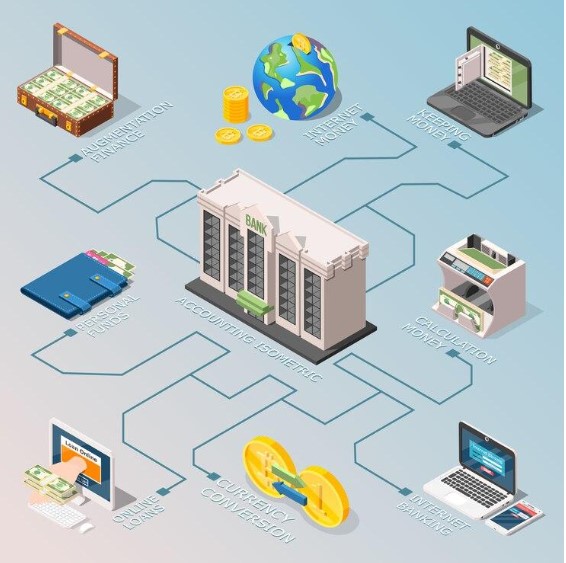The debate between Central Banking and Non-Central Banking is a significant topic in finance. Both banking systems have essential roles in the economic structures of nations. Still, they operate based on different principles and philosophies. This article aims to compare the efficiencies and impact of each system in detail and answer the essential question: which is more effective, Central or Non-Central Banking?
Understanding Central Banking
Central Banking is characterized by a centralized monetary authority, typically known as the central bank that oversees a nation’s monetary policy. The Federal Reserve, European Central Bank, and Bank of
England is Central Banks.
- Monetary Control: Central banks have a significant role in controlling money supply and interest rates to maintain price stability and support economic growth.
- Lender of Last Resort: In times of financial distress, the central bank can provide loans to prevent bank runs and boost confidence in the banking system.
- Regulatory Oversight: Central banks also regulate and supervise the banking sector to ensure the safety and soundness of the financial system.
Exploring Non-Central Banking
On the other hand, non-central banking includes alternative banking arrangements where multiple regional banks are responsible for managing a country’s currency and monetary policy, or the banking sector is entirely private with no central authority. The elements of Competition and self-regulation are more pronounced in such a system.
- Market-Driven Policies: Non-central banking relies on market mechanisms to regulate money supply and credit.
- Decentralized Decision-Making: Without a unifying central institution, decisions may be made more locally and in consideration of regional economic needs.
- Reduced Government Intervention: Advocates argue that this system limits governmental power over the economy and reduces the risk of politically influenced monetary policies.
Comparative Analysis of Efficacy
| Factor | Central Banking | Non-Central Banking |
| Stability | Higher stability due to centralized control and uniform policies. | Potential for local market instabilities without centralized intervention. |
| Inflation Control | Central Banks can effectively manage inflation through monetary policy tools. | Relies on market forces, which may not always prioritize low inflation. |
| Response to Crises | Central Banks can act swiftly and decisively during financial crises. | May lack coordination and speed in the response to widespread financial issues. |
| Innovation and Competition | Potentially slower to innovate due to bureaucracy. | Fosters competition and innovation in the financial sector. |
Effectiveness in Enabling Economic Growth
There is a debate about whether Central and Non-Central Banking systems effectively promote economic growth. Central banks can use monetary policies to stimulate the economy directly. In contrast, non-central banks can encourage a free-market approach to growth. However, finding the right balance between control and freedom is crucial, and each system has advantages and disadvantages.
Conclusion
When evaluating the effectiveness of banking systems, it is crucial to consider the advantages and limitations of both Central and Non-Central Banking. The choice of banking system is often influenced by a nation’s historical, political, and economic priorities. The success of a banking system depends on its ability to manage stability, control inflation, promote economic growth, and respond to crises. Depending on the unique context of each country, the balance between these factors may vary. As global finance continues to evolve with technological advancements and changes in international relations, the boundaries between Central and Non-Central Banking may become blurred, leading to hybrid models that combine the best of both worlds. Therefore, instead of making a definitive judgment, ongoing analysis and adaptation of banking systems are crucial for promoting sustainable economic environments worldwide.



